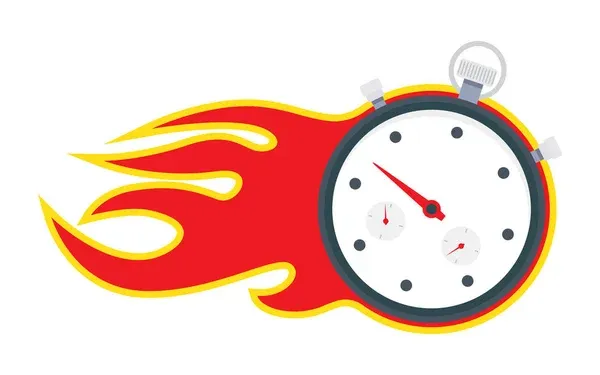Shopify SEO: Steps to Rank Your Store #1 in 2024
Other Ways To Fix External Duplicate Content
Addressing external duplicate content is a vital aspect of managing your Shopify store’s SEO. Use tools like Copyscape to identify and adjust content that appears on other sites, ensuring uniqueness and avoiding penalties from search engines. This practice not only helps in maintaining the originality of your content but also strengthens your store's reputation in the digital market. Duplicate content can confuse search engines and dilute your SEO efforts, so by proactively managing and rectifying such issues, you ensure that your store stands out with unique content, which is a key factor in how search engines work and rank your site.
Before You Start: Essentials to Improve Your Shopify SEO
Laying a solid foundation is crucial for optimizing your Shopify store for SEO. Make sure your online store is user-friendly, mobile-optimized, and secure. Create a site architecture that's easy for search engines to navigate and index. A well-structured online store not only enhances the user experience but also aids search engines in efficiently crawling your site. This includes having a clear navigation menu, proper category pages, and ensuring all important pages are easily accessible. Remember, the easier it is for your website visitors to find what they are looking for, the more likely they are to engage with your store. Also, the ease of navigation and clarity of information directly impacts how well your page SEO performs, playing a critical role in how your store ranks in search results.
Boost Your Site Speed
Site speed is a critical ranking factor for search engines. Optimize your Shopify store’s speed by compressing images, minimizing script use, and leveraging browser caching. These steps are essential not just for enhancing your store's visibility in search engines but also for providing a better user experience. Faster loading times lead to lower bounce rates and higher engagement, which in turn can lead to more website traffic and sales conversions. Keep in mind that the speed of your site affects how customers perceive your brand and their willingness to buy online. Additionally, consider using tools like Google PageSpeed Insights to regularly monitor and improve your site’s performance. As search engines evolve, they increasingly prioritize sites that load quickly, making this a key aspect of your store's SEO strategy.
Ranking First in Search Engines Can Get You Up to 30% More Daily Traffic
Securing top rankings in search engines can significantly increase visibility for your Shopify store. The top positions in Google search results, as well as in other search engines, can attract substantially more daily traffic. This elevated position not only enhances the visibility of your e-commerce site but also establishes a sense of credibility and trust among potential customers. Studies have shown that users tend to trust the first few listings in search results, associating them with reliability and quality. Consequently, a higher ranking not only drives more traffic but can also lead to higher conversion rates, making it a crucial goal for any Shopify store aiming to increase its market presence and sales.
Technical SEO for Shopify is Mandatory
Technical SEO is essential for your Shopify store’s performance in search engines. Focus on improving your site structure, ensuring proper indexing, utilizing schema markup, and maintaining your Google Search Console account. It's also important to consider the integration of Google Analytics for deeper insights into your website traffic and user behavior. Effective technical SEO helps search engines easily crawl and index your site, improving your visibility in search engine optimization SEO. This includes optimizing your site for mobile devices, improving page load times, and ensuring a secure browsing experience. By prioritizing technical SEO, you're setting a strong foundation for your store’s online success, making it more likely to be favorably ranked by search engines.
How People Use Keywords in Search Engines to Buy Products
Understanding how people use keywords in search engines is key to attracting buyers to your Shopify store. Integrating transactional keywords into your store’s meta tags and product descriptions can draw in customers ready to make a purchase. This practice is not just about stuffing keywords but understanding the intent behind search queries. Users often search with specific needs or questions in mind, and by aligning your content with these needs, you increase the chances of your products appearing in relevant search results. It's essential to conduct thorough keyword research and include these keywords naturally in your meta descriptions and throughout your site's content. Remember, your goal is to match the language and search patterns of your potential customers, making your Shopify store more visible and accessible to those who are actively looking to buy products in your niche.
Map Keywords to Existing URLs
Efficient keyword mapping to your URLs is essential for optimizing your web pages for the terms your customers use, significantly enhancing search engine rankings. This process involves aligning specific keywords with the appropriate pages and ensuring they reflect the content and products offered. Effective keyword mapping improves relevance and accessibility in search engine queries, driving more organic traffic to your e-commerce site. It's a critical aspect of on-page SEO, helping search engines contextualize your content, thus increasing visibility in relevant searches. Utilize free tools for keyword research and analysis to refine this strategy further.
How To Edit Meta Titles And Descriptions
Editing meta titles and descriptions is straightforward and can greatly impact SEO. In the admin panel, use the ‘Search engine listing preview’ to create meta tags that are keyword-focused and compelling. These tags are the first impression of your pages in search queries, so they need to be engaging and informative. Effective meta titles and descriptions can increase click-through rates, drawing potential customers. Include relevant keywords naturally, and keep the language clear. This is your chance to highlight unique selling points or calls to action, making your pages stand out.
How To Set Domain-Level Canonicalization
Setting up domain-level canonicalization is vital for maintaining a consistent online presence and avoiding duplicate content issues. By choosing a preferred domain and ensuring all URL variants point to it, you provide clear direction to search engines about your primary site. This practice consolidates page authority and ranking power, simplifying the indexing process for search engines and potentially improving visibility. Canonical tags are key in this process, guiding search engines to prioritize the canonical version of similar pages. Implementing domain-level canonicalization is an important part of technical SEO and enhances the overall performance of your online presence.
Optimize Your Images to Load Quickly and Be Found by Search Engines
Optimizing images is crucial for both loading speed and visibility in search engines. Compress your images and use descriptive file names and alt tags for enhanced performance in search results.
SEO Tips for the Shopify E-commerce Platform
For Shopify e-commerce sites, use built-in SEO features like automatic sitemaps and optimize your H1 tags. Use Shopify’s blog to create engaging content that drives traffic.
Keyword Research
Conducting effective keyword research is crucial for your Shopify store. Use tools like Google Keyword Planner for keyword ideas, forming the basis of your SEO strategy.
How to Optimize Title Tags for Categories
Optimize title tags for category pages in your Shopify store with unique, keyword-rich titles. This enhances both user experience and search engine rankings.
Submit Your Sitemap to Google Search Console and Fix Site Errors
Submitting your sitemap to Google Search Console and regularly fixing site errors is vital for your Shopify store's SEO, ensuring proper indexing by Google.
Match Search Intent and Create Pages Relevant to Your Target Keywords
Create content that aligns with the search intent of your target keywords, improving your chances of ranking well in search engines and meeting user expectations.
Research the Right Target Keywords
Identifying the right target keywords is essential for your Shopify store. Look for terms relevant to your products with high search volume and low competition.
Always Link Your Products Page from the Home Page
Linking your product pages from the home page of your Shopify store boosts their visibility and search engine rankings through effective internal linking.
Content Optimization to Make Your Pages Visible
Optimize your content to be informative and engaging, exceeding mere keyword incorporation. This is essential for visibility in search engine results.
Don't Neglect Setting Up 301 Redirects for Old Product Pages
Implementing 301 redirects for discontinued or changed URLs in your Shopify store maintains SEO value and enhances user experience.
Install the Free Product Review App
Adding a product review app to your Shopify store boosts your SEO by providing fresh content and enhancing trust and conversion rates.
Build High-Quality Backlinks to Your Shopify Store
Acquire quality backlinks from relevant websites to enhance your Shopify store's presence in search engines, a cornerstone of SEO.
Understand the Topic Behind the Keyword and Build It into Your Page
Build content around the topic of your target keywords, helping your Shopify store rank for a broader set of related terms in search engines.
Foundational Links
Ensure your Shopify store has foundational links from social media and business directories. These establish credibility and authenticity.
Build Links to Your Store
Engage in guest posting and networking to acquire valuable backlinks for your Shopify store, focusing on quality over quantity.
Smart SEO
Stay updated with the latest SEO trends and regularly review your Shopify store’s SEO strategy, adapting to changing algorithms of search engines.
Write Guest Posts
Writing guest posts for relevant websites provides backlinks and establishes authority, benefiting your Shopify store’s SEO.
Rank Higher With Content Marketing
Use content marketing to create valuable and relevant content, attracting a defined audience and improving your Shopify store’s online presence.
Broken Link Building
Employ broken link building by replacing broken links on other websites with your content, a valuable way to build backlinks and enhance SEO.
By following these steps and continuously optimizing your Shopify store, you can achieve better rankings and increased traffic. SEO is an ongoing process, and staying informed and adapting is crucial.
Install SEOPro on your store
Consider installing SEOPro to improve your Shopify store's performance in search engines. This tool is designed to enhance SEO efforts effectively. Give SEOPro a try to see its impact on your search engine optimization.





